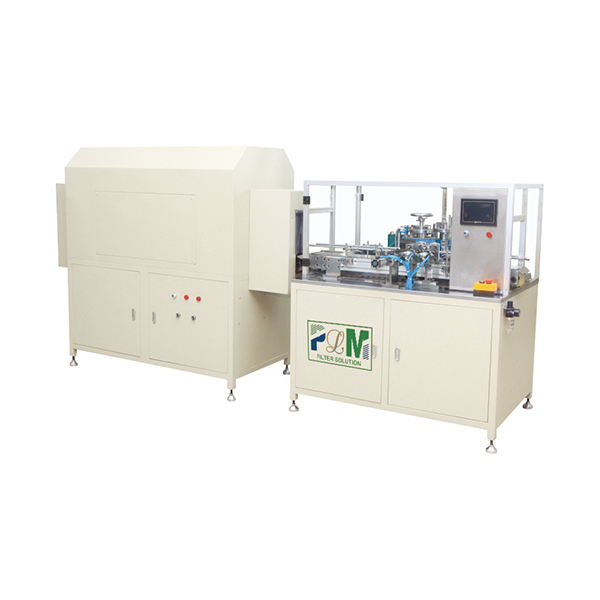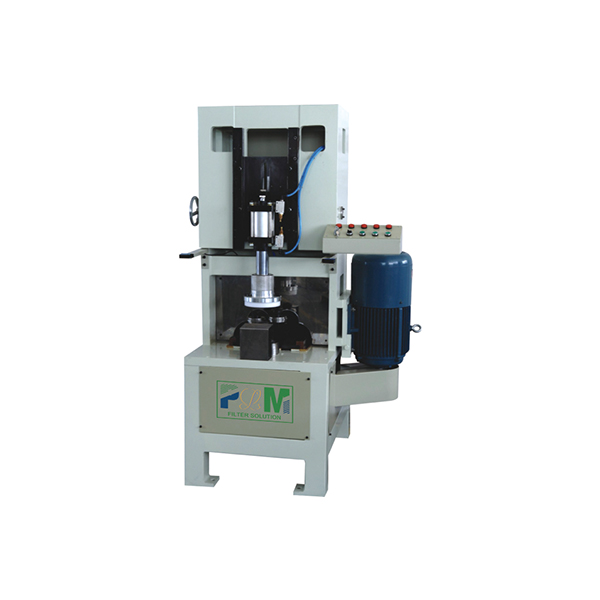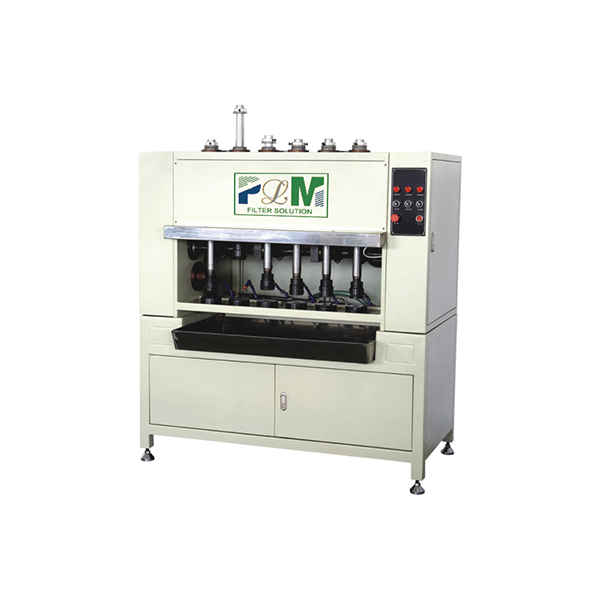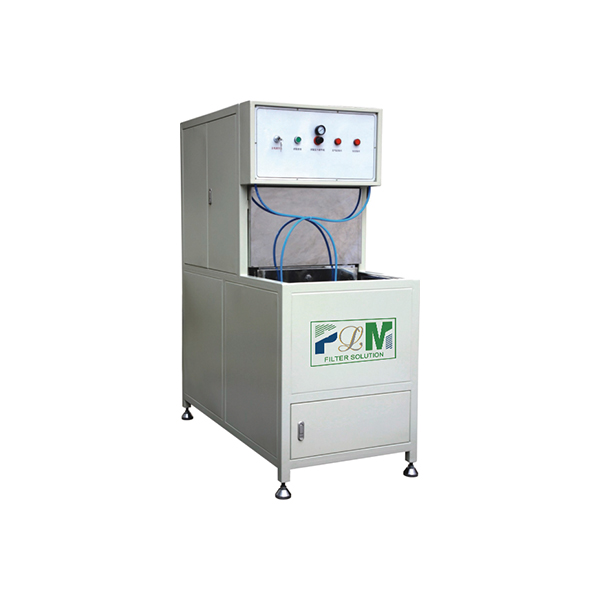Sep . 01, 2025 01:40 Back to list
5 Micron Sintered Porous Metal Filter Tube Cup | Precision
Introduction to Sintered Porous Metal Filter Tube Cups
In critical industrial processes, the demand for highly efficient and robust filtration solutions is paramount. Among these, the sintered porous metal filter tube cup stands out as a superior choice, offering unparalleled performance in challenging environments. These specialized components are engineered for precision filtration, separation, and fluid control, playing a pivotal role across a multitude of sectors where conventional filter media often fail to meet stringent operational demands.
A sintered porous metal filter tube cup is not merely a filter; it is a high-performance engineered solution. Its unique structure, characterized by a precisely controlled pore size distribution, provides exceptional filtration efficiency, high mechanical strength, and remarkable resistance to extreme temperatures, aggressive chemicals, and corrosive agents. This introduction delves into the intricate world of these advanced filtration elements, exploring their manufacturing, applications, and the distinct advantages they offer to B2B decision-makers and engineers seeking optimal operational reliability and efficiency.
The Manufacturing Process Flow of Sintered Porous Metal Filter Tube Cups
The production of a sintered porous metal filter tube cup is a sophisticated process rooted in advanced powder metallurgy. Unlike traditional casting or forging, sintering involves the compaction and thermal treatment of metal powders to create a solid, porous structure. This method allows for precise control over porosity, pore size, and mechanical properties, which are critical for filtration applications.
Key Stages in Manufacturing:
- Material Selection and Powder Preparation: The journey begins with selecting high-purity metal powders such as Stainless Steel (316L, 304L), Bronze, Nickel-based Alloys (e.g., Hastelloy, Inconel), or Titanium. These materials are chosen for their specific chemical resistance, high-temperature stability, and mechanical properties. The powders undergo atomization or grinding processes to achieve a uniform particle size distribution, crucial for consistent pore structure in the final product.
- Forming (Compaction): The prepared metal powders are then formed into the desired shape of the filter tube cup. Common methods include:
- Uniaxial Pressing: Powder is compacted in a die using pressure from one direction.
- Isostatic Pressing: Powder is sealed in a flexible mold and subjected to uniform pressure from all directions in a fluid medium, resulting in higher density and more uniform green strength. This is often preferred for complex shapes and superior pore consistency.
- Extrusion: For continuous tube forms, powder mixed with a binder can be extruded through a die. The forming process creates a "green" compact, which is fragile but holds the shape.
- Sintering: This is the core process where the green compact is heated to a high temperature (below the material's melting point) in a controlled atmosphere (e.g., vacuum, hydrogen, inert gas). During sintering, adjacent metal particles bond at their contact points through atomic diffusion, creating a robust, interconnected porous structure. The precise control of temperature, time, and atmosphere is critical to achieving the specified pore size, porosity, and mechanical strength. This stage is paramount for creating a reliable sintered porous metal filter tube cup.
- Secondary Machining and Finishing: Post-sintering, the filter tube cups often require secondary operations such as CNC machining, grinding, or welding to achieve exact dimensions, surface finishes, and to integrate end connections or mounting features. This ensures precision fitting and optimal performance in diverse systems.
- Cleaning and Quality Testing: The finished filter elements undergo rigorous cleaning, typically ultrasonic cleaning, to remove any residual particles or contaminants from the manufacturing process. Comprehensive testing is then performed to verify product integrity and performance.
Testing Standards and Quality Assurance:
To ensure the highest quality and compliance, sintered porous metal filter tube cup products are subjected to stringent testing based on international standards:
- Pore Size Distribution: Measured via bubble point test (e.g., ASTM E128) and porometry to ensure the specified filtration efficiency, including critical parameters like `5 micron sintered porous filter tube`.
- Flow Rate and Pressure Drop: Evaluated under various conditions to confirm hydraulic performance (e.g., ISO 2942).
- Mechanical Strength: Burst pressure, collapse pressure, and tensile strength tests ensure the filter can withstand operational stresses (e.g., ASTM E128, ANSI B31.1 for piping components).
- Corrosion Resistance: Accelerated corrosion tests ensure suitability for aggressive chemical environments.
- Cleanliness: Particle count tests verify the absence of manufacturing contaminants.
The service life of a sintered porous metal filter tube cup is significantly longer than many conventional filter media, often extending for years, depending on the application and maintenance. Their robust construction and back-washability contribute to their longevity and cost-effectiveness.
Target industries benefiting from these rigorous processes include petrochemical, metallurgy, water supply & drainage, pharmaceuticals, and aerospace, where energy saving through reduced maintenance and superior corrosion resistance are critical advantages.
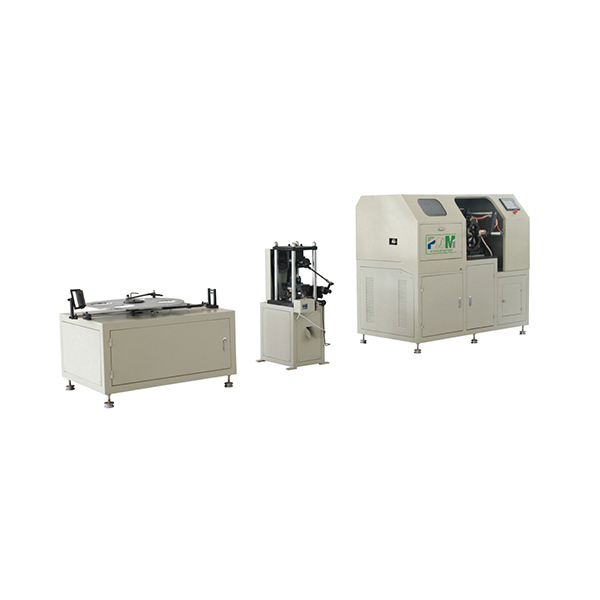
Schematic Representation: Key steps in the production of a sintered porous metal filter.
Technical Specifications and Parameters
Understanding the precise technical specifications of a sintered porous metal filter tube cup is crucial for optimal system integration and performance. These parameters define the filter's capabilities and suitability for specific operational demands, directly impacting efficiency, safety, and longevity.
Key Technical Parameters:
- Pore Size (Micron Rating): Ranging typically from 0.5 to 100 microns, with common requirements including specific `5 micron sintered porous filter tube` for fine particulate removal. This dictates the smallest particle size the filter can effectively capture.
- Material Composition: Most commonly 316L Stainless Steel for general chemical compatibility, 304L for lower cost, and specialized alloys like Hastelloy, Inconel, or Titanium for highly corrosive or high-temperature applications.
- Operating Temperature Range: Dependent on the material, ranging from cryogenic conditions up to 600°C for stainless steel and even higher for nickel alloys, significantly exceeding polymer filter limits.
- Operating Pressure: Can withstand differential pressures from 10 bar up to 250 bar or more, thanks to inherent mechanical strength.
- Porosity: The percentage of void space within the filter, typically 25-50%, affecting flow rate and dirt holding capacity.
- Dimensions: Outer Diameter (OD), Inner Diameter (ID), Length, and Wall Thickness are crucial for housing compatibility and flow characteristics.
- Flow Rate: Measured in volume per unit time (e.g., L/min or GPM) at a specific pressure drop, indicating the filter's capacity.
- Surface Area: Maximizing effective surface area through pleated or convoluted designs (when applicable for certain elements, though tube cups are generally cylindrical) enhances dirt holding capacity and extends service life.
Table 1: Typical Sintered Porous Metal Filter Tube Cup Specifications
| Parameter | Typical Range / Value | Description / Relevance |
|---|---|---|
| Material | 316L SS, 304L SS, Bronze, Hastelloy, Inconel, Titanium | Determines chemical compatibility, temperature resistance. |
| Pore Size | 0.5µm to 100µm (e.g., 5µm, 10µm, 20µm) | Defines filtration efficiency; `5 micron sintered porous filter tube` for fine filtration. |
| Operating Temp. | -200°C to +600°C (SS); up to +1000°C (Nickel Alloys) | Suitability for extreme thermal environments. |
| Max Differential Pressure | 10 bar to 250 bar (customizable) | Resistance to pressure surges and high-pressure systems. |
| Porosity | 25% to 50% | Affects flow characteristics and dirt holding capacity. |
| Typical OD Range | 10mm to 100mm | External dimension for housing integration. |
| Typical Length Range | 50mm to 1000mm (customizable) | Filter element size. |
| Cleanliness Standard | ISO 4406 (dependent on application) | Ensures minimal pre-existing contamination. |
Industry Trends and Innovations in Porous Metal Filtration
The landscape of industrial filtration is continually evolving, driven by stricter environmental regulations, increasing demand for product purity, and the need for more efficient and sustainable operations. These trends directly influence the development and adoption of advanced filtration solutions like the sintered porous metal filter tube cup.
Key Industry Trends:
- Increasing Demand for High-Performance Filtration: Industries such as pharmaceuticals, semiconductors, and specialty chemicals require increasingly finer and more reliable filtration to meet ultra-purity standards. This drives innovation in pore size control and material science for a sintered porous metal filter tube cup.
- Adoption of Advanced Materials: Beyond traditional stainless steel, there's a growing shift towards exotic alloys (e.g., Hastelloy, Inconel, Monel) and even ceramic-metal composites to withstand harsher operating conditions, including extreme temperatures, highly corrosive media, and high-pressure differentials.
- Sustainability and Reusability: The emphasis on environmental responsibility favors filter media that are cleanable, back-flushable, and reusable, significantly reducing waste and operating costs. Sintered metal filters inherently offer this advantage, contributing to a circular economy model. This contrasts with disposable filters often produced by a `pp spun filter cartridge making machine`.
- Miniaturization and Integration: As equipment becomes more compact, there's a need for smaller, yet equally efficient, filtration components. This trend pushes for innovative designs that maximize filtration area within minimal footprints.
- Smart Filtration Systems: Integration with IoT and sensor technologies for real-time monitoring of filter performance, pressure drop, and predictive maintenance. This allows for optimized filter replacement schedules and reduced downtime.
- Customization and Application-Specific Solutions: A general-purpose filter often falls short. The trend is towards highly customized solutions, where the filter element's material, pore size, and dimensions are precisely tailored to the specific process fluid, operating conditions, and contamination type.
These trends underscore the evolving landscape where filter manufacturers, much like those operating a `professional air filter making machine` or a `reverse osmosis water filter machine`, must continuously innovate to meet increasingly complex industrial demands. The robust and versatile nature of a sintered porous metal filter tube cup positions it at the forefront of these advancements.
Application Scenarios and Industry Benefits
The unique properties of a sintered porous metal filter tube cup make it indispensable across a broad spectrum of high-stakes industrial applications where reliability, efficiency, and resistance to harsh conditions are paramount. Its ability to provide precise filtration in demanding environments translates into significant operational advantages.
Key Application Industries and Scenarios:
- Petrochemical and Chemical Processing: Used extensively for catalyst recovery in reactors, gas filtration (e.g., hydrogen, natural gas), steam filtration, and purification of aggressive chemical streams. Their corrosion resistance (e.g., in sulfuric acid production) and high-temperature stability reduce downtime and enhance product purity, leading to substantial energy saving by minimizing reprocessing.
- Oil and Gas: Employed in wellhead filtration, removal of contaminants from drilling fluids, and separation of solids from liquid or gas streams in refineries. Critical for protecting downstream equipment and ensuring product quality.
- Metallurgy and High-Temperature Processes: Ideal for hot gas filtration in steel mills and foundries, as well as molten metal filtration to remove inclusions, improving the quality of final metal products. The robust nature of a sintered porous metal filter tube cup ensures performance where conventional filters would melt or degrade.
- Water Supply & Drainage / Water Treatment: Essential for pre-filtration in `reverse osmosis water filter machine` systems, protecting delicate RO membranes from particulate fouling. They also play a role in advanced `pure water treatment filter machine` solutions and effluent treatment, ensuring discharge compliance and resource recovery.
- Pharmaceutical and Biotechnology: Used for sterile filtration of gases, clarification of fermentation broths, and purification of active pharmaceutical ingredients (APIs). The inertness of stainless steel and precise `5 micron sintered porous filter tube` ratings are critical for regulatory compliance and product integrity.
- Food and Beverage: Applications include clarification of beverages, edible oil filtration, and steam filtration for sterilization, ensuring product safety and quality.
- Aerospace and Defense: Crucial for hydraulic fluid filtration, fuel filtration, and pneumatic system protection in aircraft and ground support equipment, where failure is not an option.
- Power Generation: Used in steam and condensate polishing, and for filtering lube oils and coolants, enhancing turbine longevity and system efficiency.
In all these scenarios, the inherent technical advantages of a sintered porous metal filter tube cup — superior corrosion resistance, high mechanical strength, thermal stability, and cleanability — contribute directly to increased operational uptime, reduced maintenance costs, enhanced product quality, and improved process safety.
Technical Advantages of Sintered Porous Metal Filters
The distinctive manufacturing process and material properties endow the sintered porous metal filter tube cup with a suite of technical advantages that set it apart from conventional filtration media, making it the preferred choice for demanding B2B applications.
Core Advantages:
- Exceptional Mechanical Strength and Durability: Unlike fragile fibrous or pleated polymer filters, sintered metal filters are self-supporting and rigid. They can withstand high differential pressures, thermal shocks, and mechanical stresses without deformation or collapse. This robustness translates into a significantly longer service life and reduced risk of media migration.
- Superior Temperature and Corrosion Resistance: Fabricated from various alloys, including stainless steel, nickel alloys, and titanium, these filters maintain their integrity and performance in extreme temperature environments (from cryogenic to over 1000°C) and highly corrosive chemical streams, where polymer or ceramic filters would fail. This offers unparalleled reliability in aggressive process conditions.
- Precise and Consistent Pore Size Distribution: The controlled sintering process ensures a uniform and accurate pore structure, providing highly effective and repeatable filtration down to sub-micron levels, such as the `5 micron sintered porous filter tube`. This precision is critical for product purity and protection of sensitive downstream equipment.
- Back-Washable and Reusable: A significant economic and environmental advantage is their ability to be cleaned and regenerated, often through back-flushing with liquid or gas, ultrasonic cleaning, or chemical cleaning. This reusability drastically reduces operational costs associated with frequent filter replacement and minimizes waste, contrasting sharply with single-use filter elements.
- No Media Migration: The solid, interconnected porous structure of sintered metal ensures that no filter media particles migrate into the filtered stream, a common concern with fibrous or granular filters. This is vital for applications requiring ultra-high purity.
- Versatile Filtration Mechanism: Sintered filters primarily operate via surface filtration and depth filtration, capturing particles both on the surface and within the porous matrix, leading to high dirt-holding capacity.
- Sterilizable and Sanitizable: For pharmaceutical and food & beverage industries, these filters can be easily sterilized in-situ with steam or hot water, or sanitized with aggressive cleaning agents, without compromising their structural integrity or filtration performance.
These inherent technical advantages translate into tangible benefits: extended service life, reduced operational costs, enhanced process uptime, superior product quality, and improved safety. For operations that might use a `paper folding machine for air filter` or a `2014 - car air filter making machine`, the focus is on production; for critical processes, the sintered porous metal filter tube cup offers an advanced, reliable filtration solution.
Vendor Comparison and Customized Solutions
Selecting the right supplier for a sintered porous metal filter tube cup is as crucial as understanding the product itself. A reliable vendor not only provides high-quality products but also offers essential expertise, customization capabilities, and robust after-sales support. Vendor comparison should go beyond mere price, focusing on long-term value and partnership.
Key Factors for Vendor Comparison:
| Comparison Factor | Description / Importance |
|---|---|
| Material Expertise & Range | Ability to work with a wide array of metal powders (SS, Hastelloy, Titanium) and recommend the best fit for specific applications, especially for requirements like a `5 micron sintered porous filter tube`. |
| Manufacturing Capabilities | Advanced pressing and sintering equipment, precision machining capabilities (e.g., CNC) for tight tolerances and complex geometries. |
| Quality Control & Certifications | Adherence to ISO 9001, comprehensive testing (bubble point, flow rate, mechanical strength), and traceable material batches. FDA compliance for specific industries. |
| R&D and Innovation | Commitment to developing new materials, improving pore structures, and offering cutting-edge solutions for emerging filtration challenges. |
| Customization Options | Flexibility in tailoring dimensions, pore size, material combinations, end connections, and specific designs to meet unique process requirements. |
| Lead Time & Logistics | Reliable delivery schedules, efficient order fulfillment, and global shipping capabilities to minimize project delays. |
| Technical Support & Service | Availability of experienced engineers for consultation, troubleshooting, and application-specific advice. After-sales support for performance optimization. |
Customized Solutions: Tailored for Optimal Performance
One of the most significant advantages of partnering with a specialized manufacturer of sintered porous metal filter tube cup products is the availability of customized solutions. Off-the-shelf filters often fall short in highly specialized or extreme industrial environments. Customization ensures:
- Precise Pore Size and Distribution: Engineered for the exact particle removal efficiency required, from coarse separation to ultra-fine filtration.
- Optimized Material Selection: Choosing the ideal alloy for specific chemical compatibility, temperature resistance, and mechanical strength requirements.
- Specific Dimensions and Configurations: Tailored to fit existing housing, complex geometries, or unique system interfaces, ensuring seamless integration.
- Enhanced Performance Characteristics: Designs can be optimized for higher flow rates, lower pressure drop, increased dirt-holding capacity, or specific back-washing efficacy.
Engaging with a vendor capable of providing bespoke solutions transforms the filter from a standard component into a finely tuned instrument, maximizing efficiency and minimizing operational risks for applications from a `screw press sludge dewatering machine` to critical petrochemical processes.
Application Case Studies: Real-World Impact
The efficacy of a sintered porous metal filter tube cup is best illustrated through its successful implementation in challenging industrial environments. These case studies highlight the tangible benefits and return on investment achieved through superior filtration.
Case Study 1: Enhanced Catalyst Recovery in Petrochemical Processing
Challenge: A major petrochemical plant faced significant catalyst losses and frequent downtime due to inefficient solid-liquid separation after a reaction step. Traditional mesh filters failed under high-temperature, high-pressure, and corrosive conditions, leading to downstream equipment fouling and reduced catalyst yield.
Solution: The plant implemented custom-designed sintered porous metal filter tube cup elements made from 316L stainless steel, specifically engineered with a `5 micron sintered porous filter tube` rating for precise catalyst particle retention. The elements were designed for in-situ back-flushing.
Result: Within six months, catalyst recovery efficiency improved by 15%, translating to millions in annual savings. Downtime for filter maintenance was reduced by 70%, and the integrity of downstream processes significantly improved, demonstrating exceptional corrosion resistance and mechanical robustness.
Case Study 2: Protecting Reverse Osmosis Membranes in Industrial Water Treatment
Challenge: An industrial facility utilizing a `reverse osmosis water filter machine` for `pure water treatment filter machine` experienced premature fouling and damage to its expensive RO membranes. Existing pre-filters (spun cartridges) were not consistently removing fine suspended solids and colloidals, leading to frequent membrane cleaning and replacement, escalating operational costs.
Solution: The facility upgraded its pre-filtration stage with a robust sintered porous metal filter tube cup system, utilizing filters with a 10-micron absolute rating. These filters were integrated into an automatic back-flush system.
Result: Membrane cleaning frequency was reduced by 80%, and membrane lifespan increased by over 50%. The higher and more consistent filtration efficiency provided by the sintered metal filters significantly lowered total cost of ownership for the water treatment plant, and ensured consistent water quality for critical processes.
Case Study 3: High-Temperature Gas Filtration in a Metallurgical Plant
Challenge: A metallurgical plant required efficient filtration of hot exhaust gases (up to 700°C) containing abrasive particulate matter. Conventional bag filters could not withstand the high temperatures, leading to frequent material degradation, safety hazards, and poor emission control.
Solution: The plant installed a custom system featuring Hastelloy X sintered porous metal filter tube cup elements. Hastelloy X was chosen for its exceptional high-temperature strength and oxidation resistance. The filter design incorporated a pulse-jet cleaning system for continuous operation.
Result: The new system effectively removed 99.9% of particulate matter, meeting stringent environmental regulations. The sintered metal filters demonstrated outstanding thermal stability and abrasion resistance, eliminating filter media replacement for over two years, a stark contrast to the monthly replacements previously required. This led to significant reductions in operational costs and a safer working environment.
Trustworthiness & Support: Your Partner in Filtration
Building trust is paramount in B2B relationships. Our commitment extends beyond delivering a high-quality sintered porous metal filter tube cup; it encompasses comprehensive support, clear communication, and unwavering dedication to customer success. We understand that filter reliability is critical to your operations.
Frequently Asked Questions (FAQ):
Q: What is the typical lifespan of a sintered porous metal filter tube cup?
A: With proper material selection, application, and maintenance (e.g., regular cleaning), a sintered porous metal filter can last for many years, often exceeding 5-10 years, making it a highly cost-effective solution compared to disposable alternatives.
Q: How do I select the correct pore size for my application?
A: Pore size selection depends on the required filtration efficiency, the nature of the contaminants, and the sensitivity of downstream equipment. Our technical team can assist in determining the optimal micron rating, such as a `5 micron sintered porous filter tube` for precision applications, based on your specific process data.
Q: Can sintered metal filters be cleaned and reused?
A: Yes, a primary advantage of sintered porous metal filters is their reusability. They can be effectively cleaned using various methods including back-flushing (liquid or gas), ultrasonic cleaning, or chemical cleaning, depending on the contaminant and filter material.
Q: What materials are available for sintered porous metal filter tube cups?
A: Common materials include 316L Stainless Steel, 304L Stainless Steel, Bronze, and specialized alloys like Hastelloy, Inconel, and Titanium, chosen based on the application's temperature, pressure, and chemical compatibility requirements.
Lead Time & Fulfillment:
We understand the importance of timely delivery for project continuity. Standard sintered porous metal filter tube cup products typically have a lead time of 3-5 weeks. Custom orders, due to their specialized engineering and manufacturing requirements, may range from 6-12 weeks, depending on complexity and material availability. Our logistics team works diligently to ensure efficient order processing and delivery to your site.
Warranty Commitments:
All our sintered porous metal filter tube cup products are backed by a comprehensive warranty against manufacturing defects and material failures under specified operating conditions. We stand by the quality and performance of our filters, designed and tested to meet or exceed industry standards. Detailed warranty terms are available upon request.
Customer Support & Technical Assistance:
Our dedicated team of experienced engineers and technical support specialists is available to assist you at every stage, from initial consultation and filter selection to installation, operation, and troubleshooting. We provide expert advice on optimizing filter performance, cleaning protocols, and resolving any technical challenges. Your operational continuity is our priority.
Conclusion: The Enduring Value of Sintered Porous Metal Filter Tube Cups
In the complex and demanding world of industrial filtration, the sintered porous metal filter tube cup represents a pinnacle of engineering excellence. Its unparalleled combination of mechanical strength, high-temperature resistance, chemical inertness, precise filtration capabilities (including critical `5 micron sintered porous filter tube` ratings), and reusability positions it as an indispensable component for mission-critical applications across petrochemical, pharmaceutical, water treatment, and countless other sectors.
By investing in these advanced filtration solutions, B2B decision-makers and engineers can achieve significant operational efficiencies, reduce maintenance overheads, enhance product purity, and ensure environmental compliance. As industries continue to evolve, demanding greater performance and sustainability, the role of the sintered porous metal filter tube cup will only grow in importance, securing cleaner processes and a more reliable future.
References
- German, R. M. (2005). Powder Metallurgy and Particulate Materials Processing. Metal Powder Industries Federation.
- Pillai, S., & Shivanath, R. (2018). Filtration: Principles and Industrial Practices. CRC Press.
- ASTM International. (Latest Edition). Standard Test Method for Maximum Pore Diameter and Permeability of Rigid Porous Filters for Laboratory Use (ASTM E128).
- ISO. (Latest Edition). Hydraulic fluid power - Filter elements - Determination of fabrication integrity (ISO 2942).
- Loh, K. P., & Tan, Y. (2019). Advanced Materials for Filtration Applications. Materials Today: Proceedings.
active carbon air filter for air purifier – Odor/VOC Control
NewsNov.17,2025Replacement Dyson Carbon HEPA Air Filter – High Efficiency
NewsNov.17,2025Active Carbon Air Filter for Air Purifier | High Adsorption
NewsNov.17,2025Active Carbon Air Filter for Air Purifier | Odor & VOC Control
NewsNov.17,2025Active Carbon Air Filter for Air Purifier | Odor & VOC
NewsNov.17,2025Sintered Porous Metal Filter Tube Cup | 5 Micron, SS316L
NewsNov.11,2025

